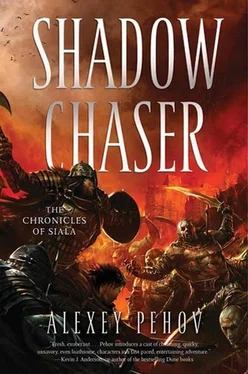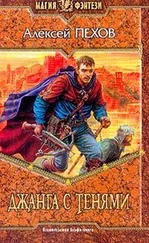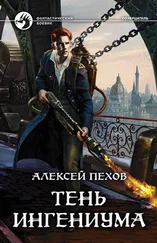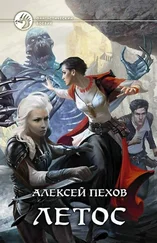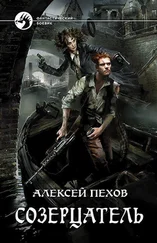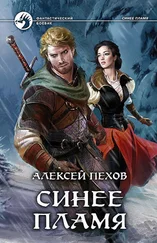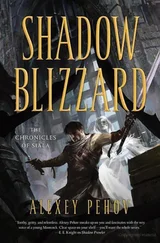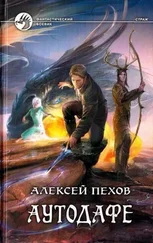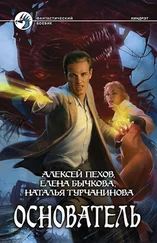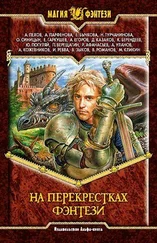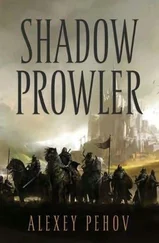According to Alistan Markauz, our detachment was due to reach the Border Kingdom before that evening. With a bit of luck and some help from the gods, we ought to come across one of the garrisons—in the Borderland no one would refuse us shelter for the night.
After the incident with Bass, Miralissa spent a long time asking me questions about what had happened. The elfess nodded knowingly and exchanged glances with Kli-Kli, who rode up to join us, but she didn’t make any comments; at the end of my story all she said was:
“As you humans say, you were born under a lucky star.”
And that was the end of the conversation. Neither she nor the goblin condescended to explain anything to me.
I waited for the right moment and approached Ell. The elf gave me a surprised look, but waited for me to start the conversation.
“Ell … I…”
“Don’t bother, Harold, your gratitude is not that important to me.”
“That wasn’t actually what I wanted to talk about,” I said, embarrassed.
“No?” A quick glance. “Well, now you intrigue me. Go on.”
“You’re from the House of the Black Rose.… I know this question might surprise you, but do you know anything about Djok the Winter-Bringer?”
“The prince-killer? Every child in our house knows about him. A magnificent story to encourage hatred of the human race.” He grinned and I couldn’t tell if he was joking or serious.
“What happened to him?”
“He was executed.”
“That’s what you tell outsiders, but what really happened to him?”
“You are an outsider yourself,” Ell replied harshly, then he paused and asked: “Why are you so interested in this?”
“I had a dream in which he wasn’t executed. At least, not in the way that was planned.”
“If you’ve had a dream, then why are you asking me?” the yellow-eyed elf asked. “That young lad was lucky; some soft-hearted individual slit his throat from ear to ear.”
The elf ran his fingers across his own throat to show how it was done.
“We don’t like to go into that story very much. Djok managed to slip through the fingers of our executioners just before the actual execution. A lucky bastard. We never found out who dispatched him into the darkness. There was a rumor that one of the orcs crept in and played a joke on us. But I don’t really believe that.”
“And…”
“Harold, it was more than six hundred years ago, there have been so many generations, and you want me to remember the old men’s stories? I don’t know any more than that.”
“I understand … but couldn’t you tell straightaway that he wasn’t guilty?”
“You know the saying anger clouds the judgment? You humans looked for … er, what do you call it … a scapegoat. Why bother trying to find the guilty party if the elf was killed by Djok’s arrow? Or an arrow very much like his? Your people had a choice. Either try to find the real killer and get involved in a war, or sacrifice one human life and forget the whole thing. Your king at the time acted wisely—the scapegoat was found, the arrow was shown in court, there was a confession, even if it was beaten out of him, witnesses…”
He pulled a wry face.
“My ancestors were no better, grief and fury clouded their reason, and we wanted revenge for what happened in Ranneng, even if the man accused wasn’t guilty. We tried to question him further, but after your beatings and our tortures … He just kept begging us not to beat him … At the time he had been found guilty; it was only three months later that they started digging deeper and discovered it was a different archer and Djok was somewhere else at the time.”
“A different archer?”
“You people don’t like to talk about your mistakes any more than we elves do. He confessed. Voluntarily. Came and told us how it all happened, where he had been hiding. How he fired. The only thing he didn’t say was why he did it.”
“He?”
“The real killer.”
“Did no one think that he was simply a madman with nothing better to do?”
“How would I know, Harold? Perhaps that’s how it really was.”
“But it was too late. Djok was already dead.”
Ell shrugged.
“One human life wasn’t very important.”
“You’re wrong,” I said quietly. “You don’t know what happened because of that terrible mistake.”
“Oh?” He looked hard at me. “Then tell me, if I’m so stupid.”
“Forget it, it’s just idle talk now.”
The elf nodded and immediately forgot about our conversation.
But I didn’t. Now I knew who, what, and why.
* * *
Milord Alistan decided to send out scouts, and now Eel and Marmot moved off far to the right or the left, in search of possible danger. So far all was quiet, and I personally would have been perfectly happy for the peace and quiet to continue for a long, long time, all the way to Hrad Spein, but all good things come to an end. Marmot came back in the afternoon and reported that there was an armed detachment moving in our direction.
“Horsemen,” he reported to Milord Rat. “About a hundred or a hundred and twenty, maybe more. All wearing armor. About half a league from here.”
“Balistan Pargaid’s men!”
“They don’t look like his, but I could be wrong, it was too far to see.”
“Did they see you?”
“You offend me, milord.” Marmot chuckled. “If we hurry, we can still get away and avoid them.”
“I don’t think we’ll be able to do that,” said Ell, pointing to a horseman who had appeared in the distance. The man noticed us, swung his horse away, and galloped off in the opposite direction. They had their scouts, too.
“Then we’ll see who comes off best,” said Deler, picking up his poleax.
“You’ll have time enough for fighting,” Honeycomb rebuked the irascible dwarf. “Keep calm. And Hallas, that means you especially.”
“Right,” said the gnome, beating out his pipe and putting it away in his saddlebag. “I’m as silent as the grave.”
Then Eel joined our group, and he had seen a little more than Marmot.
“It’s definitely not Pargaid, unless he’s trying to confuse us. They have two banners—a green field with a black cloud and lightning, and a yellow field with a clenched mailed fist in a flame.”
“I can’t say anything about the first, it’s some petty landholder, but I do know the second banner. It belongs to Count Algert Dalli, Keeper of the Western Border,” Alistan Markauz replied.
“What is he doing on someone else’s lands, milord?” the jester asked.
“It’s not necessarily him, it could just be a detachment of men who serve him.”
“I can tell you who the first banner belongs to, milord,” I interrupted. “Unless I’m mistaken that is the crest of Baron Oro Gabsbarg. We saw him at Balistan Pargaid’s reception, Kli-Kli.”
“Ah, yes, the big shaggy one! Of course, of course, now I remember.”
The atmosphere became a little less tense. I didn’t really think that the warriors of the Borderland and the baron’s men would hack us all to pieces. They were not like the bloodthirsty Count Pargaid, whose men had been waiting for us at Upper Otters—Ell had caught a glimpse of the nightingales embroidered on their clothes. The count’s henchmen had turned the inhabitants of the village against us after someone had forwarded a message. I didn’t know how the message had overtaken us—perhaps with a pigeon, or a raven, or by magic, but they had certainly arranged a warm welcome for us.
The column of horsemen appeared up ahead. They were galloping straight toward us, and I can’t say I felt very happy about that. When that kind of force is moving straight at you, you can’t help wanting to be as far away as possible. The banners fluttered in the wind, the armor and lance points glittered in the rays of sunlight, the horses’ hooves hammered on the ground … The column was approaching rapidly.
Читать дальше
